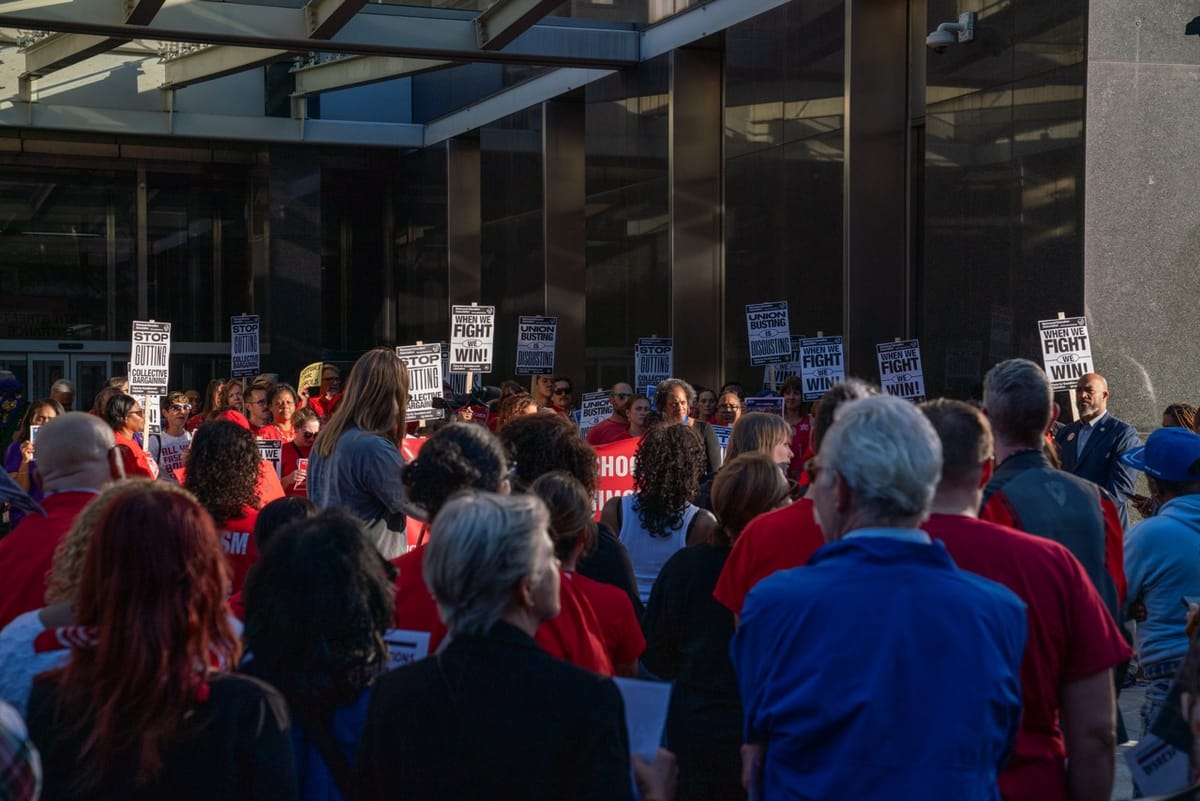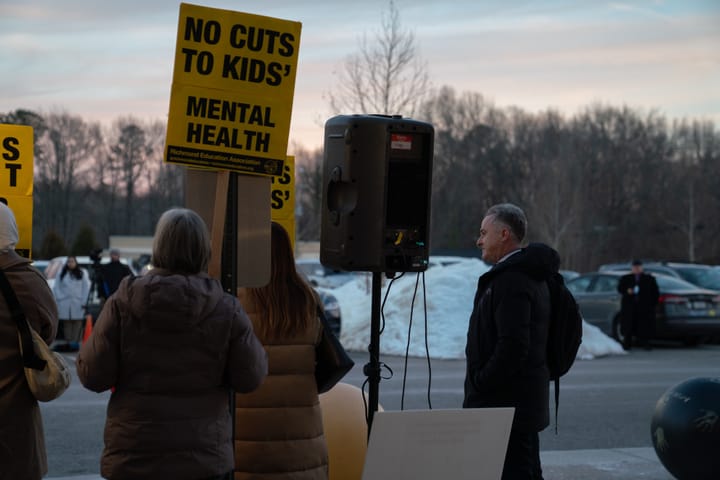RPS, unions begin negotiations on negotiating process, seeking a middle ground

Richmond Public Schools administrators and representatives from employee unions have completed the first week of an intense monthlong series of discussions about changes to the collective bargaining process.
The meetings come after the School Board deferred a vote on potential changes until November’s meeting. The public comment before the deferment was filled with union members asking the Board to vote no on the matter, arguing that unions did not have enough time to review the revisions RPS proposed.
Some members were concerned at October’s meeting that the amount of time was not enough to implement a fully agreed-upon new process for negotiations. Superintendent Jason Kamras assured members it was.
“Personally, I felt like it was a compromise,” said Andrea Bryant, president of the Richmond Education Association. “While the members would’ve loved for it to be voted down, the fact that we have more time gives us the chance to really put in meaningful input and hope that the administration takes it into account.”
Kamras told The Richmonder in an interview before the first meeting that the administration is going to hold off on beginning a new round of negotiations until the process is finalized. Contracts for unions like REA expire in June of next year, and collective bargaining was set to begin this month.
“As long as we have an agreement by then, we’re okay,” he said.
The latest changes the administration made before the School Board meeting incorporated feedback the division received from the unions, school staff and Board members, Kamras emphasized. For example, he said he heard a desire for an independent panel hearing process as part of any disputes related to collective bargaining, and added language for that back in.
“Nothing in the document is in any way intended to constrain teachers freedom of expression,” he said.
The first two meetings took place last week between the superintendent, school administrators and leaders of the unions representing teachers and support staff, bus drivers, custodians and managers – REA, Laborers' International Union of North America Local 804 and Teamsters Local 322 and 592.
Bryant said REA and Teamsters immediately discussed a proposed reduction in topics parties can negotiate on. RPS proposed capping the number of topics to 2 during every contract negotiation, while the unions are requesting an unlimited amount.
The administration’s “response was just that they don’t want negotiations to take a long time. So if you choose too many topics, they’re fearful that basically we’re going to repeat the first time, even though the process is supposed to get easier every time,” Bryant said.
REA has suggested a progressive increase in the topics, meaning that the number of topics each party can negotiate on will steadily increase each contract, before making it unlimited in the future. The union has provided language with that provision that Bryant said the administration is now reviewing. Regardless of the number of topics, the process will get better, making negotiations easier, she said.
While it appears that the union has been absent while the matter was unfolding, Chris Hollis, assistant business manager with LiUNA, told The Richmonder that LiUNA held meetings with the administration before the October meeting about changes to the process. He also said that the group was unable to join Teamsters and REA during the rally before the October meetings because leaders were out of town.
“We did have a lot of concerns as far as some of the revisions that seemed like in a sense they were gutting it, until we got clarification on what those revisions were,” he said.
Hollis said that he and other leadership were at recent meetings with REA and Teamsters, and has provided similar suggestions as REA’s to administrators. He gave credit to REA members, including Bryant, saying that the group has been instrumental in bringing all unions together to discuss the matter.
“We're really connected with other labor unions to sit at the bargaining table,” he said. “We definitely have to make sure that there's fairness and equity within this resolution, and that it doesn't shortchange anybody.”
This week, school officials will hold individual meetings with each Board member and will make revisions to the negotiation process based on the feedback for unions to review later. Virginia law makes meetings of elected officials subject to the Freedom of Information Act if three or more members gather together, regardless of the circumstances.
Bryant said that REA and Teamsters wanted a process where the School Board was actively involved by being at the meetings.
“But we understand that apparently this process was approved by the School Board, so we have to follow what they’re asking us to do,” she said.
Board Chair Shavonda Fernandez (9th District) referred to state law, and told The Richmonder in an email that if more than two members were to attend, the meeting would need to be rescheduled so it could be noticed.
“I certainly don't want to do anything to delay the process as the collective bargaining negotiations have already been pushed back to give more time for the administration to connect with the unions,” she said.
School Board members also requested that the resolution specify what happens if the administration makes future changes to the process. Now, unions must be notified in writing 30 days about any revisions before the School Board considers and votes on the amendments, according to a document entailing the administration’s schedule in meeting with the unions.
Fernandez said that the unions’ feedback is important to the entire Board.
“It is the Board's goal and desire for all parties to come to a consensus as quickly as possible yet allow time and space for collaborative conversations to take place. We are committed to seeing the process through,” she said.
Kamras believes that all sides will come to an agreement and “find an appropriate level ground” before the November meeting, saying that a majority of individuals have a common interest in making sure that collective bargaining is financially and operationally sustainable.
When asked if she sees REA being content with the final process, Bryant said that while there are some union members who are adamant on the process not changing at all – and she respects those views – it is important to be practical in doing the best she can to make the process work for all members moving forward.
“I’m just hoping that we get some middle ground,” she said. “The hope right now [is] that everybody ends up at least somewhat happy. We may not be ecstatic about the conclusion, but at least we’ll know what we’re working with.”
Contact Reporter Victoria A. Ifatusin at vifatusin@richmonder.org
The Richmonder is powered by your donations. For just $9.99 a month, you can join the 1,200+ donors who are keeping quality local news alive in Richmond.






